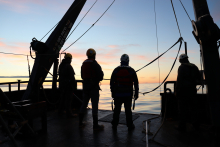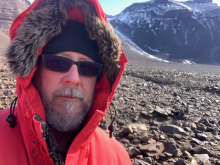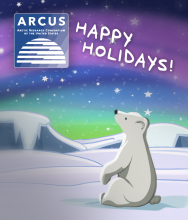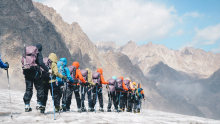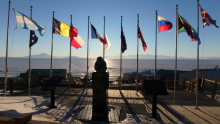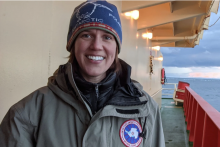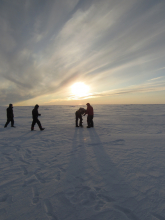Applications Open for Polar STEAM

How do you tell the story of Polar Science? Calling Artists, Writers, Educators & Researchers to become part of the Polar STEAM Team. Polar STEAM is a National Science Funded program that facilitates both virtual and in-person collaborations between educators, artists & writers, and research teams in polar environments – the Arctic and Antarctic. More information about the application and different opportunities is on the website. Curiosity thrives at Polar STEAM.

